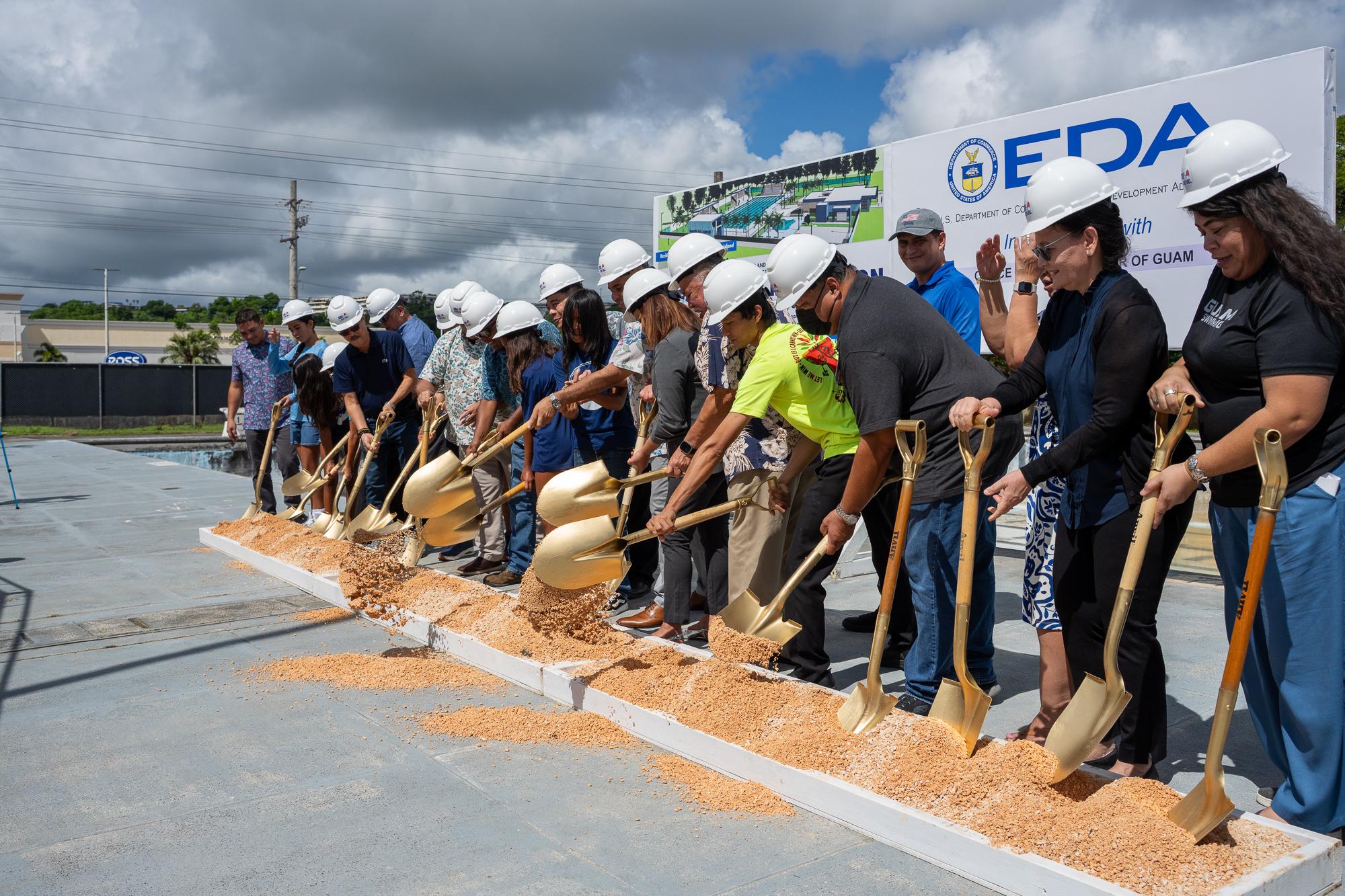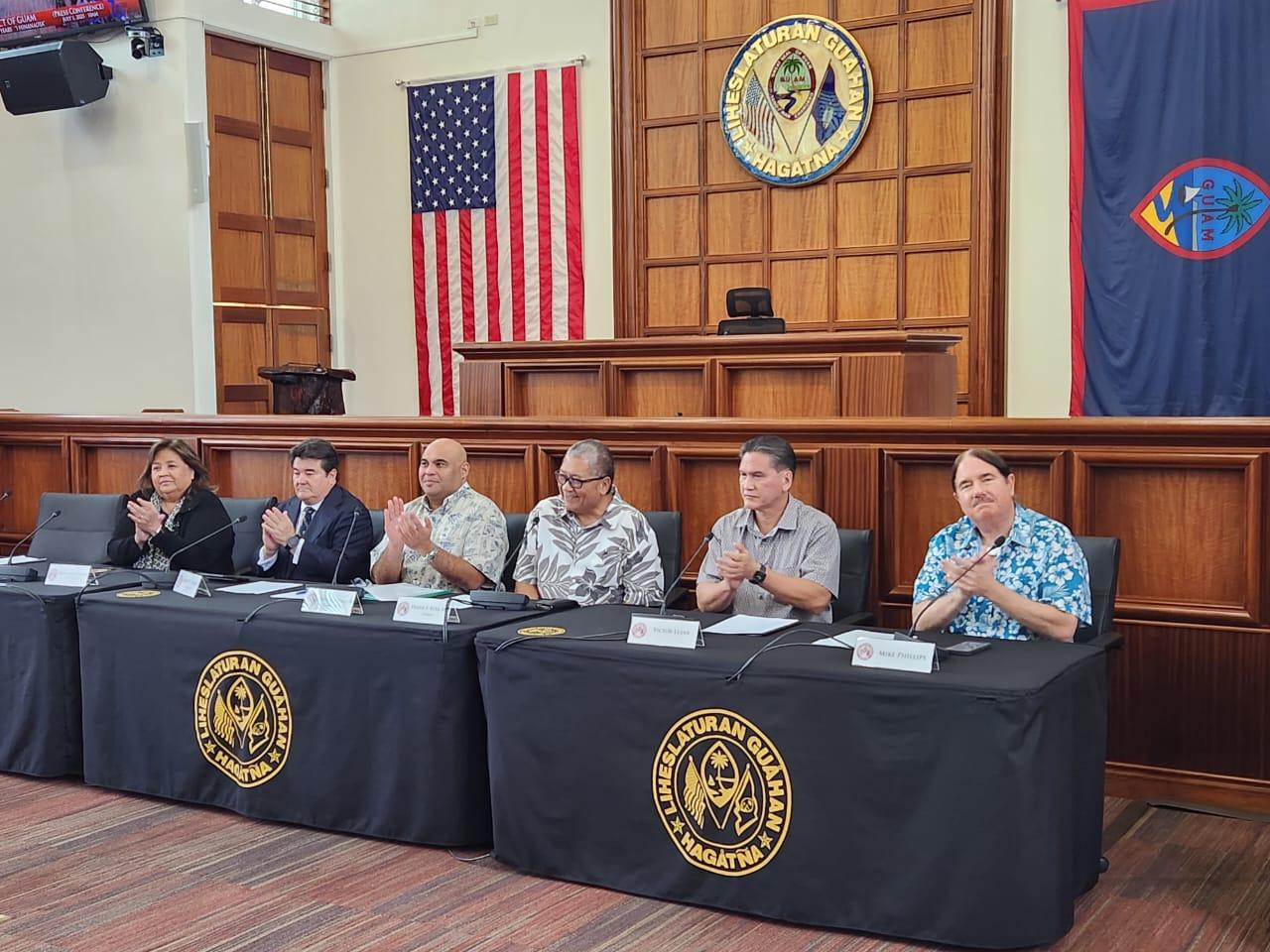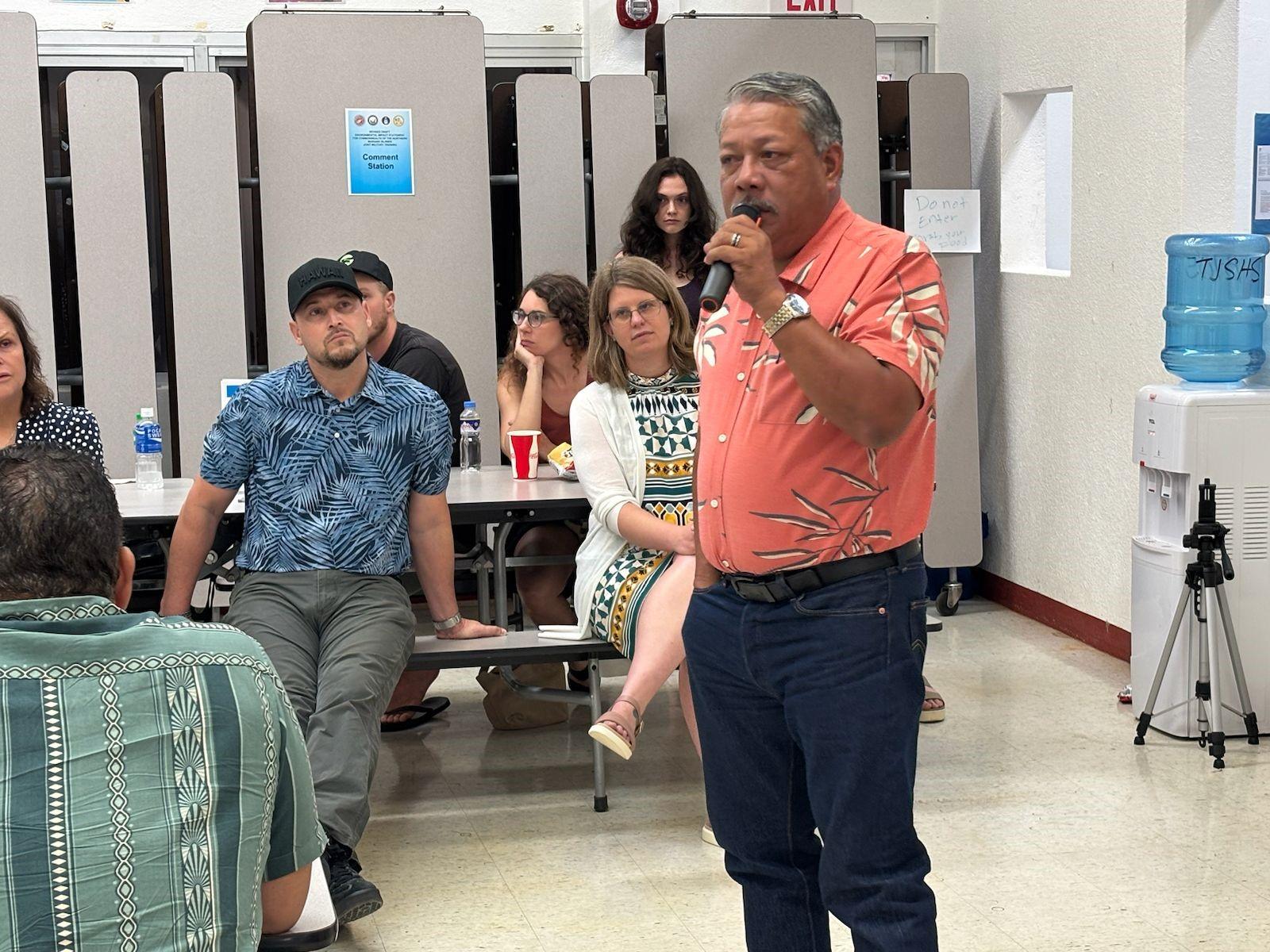BY PAULY SUBA
Journal Staff
The Todu Guam Foundation has welcomed Dr. Danny McClure as its new permanent psychiatrist, a milestone founder Dennis Rodriguez Jr. described as critical for Guam’s mental health care. “He’s our permanent psychiatrist, here for the foundation, for the people of Guam, really,” Rodriguez said.
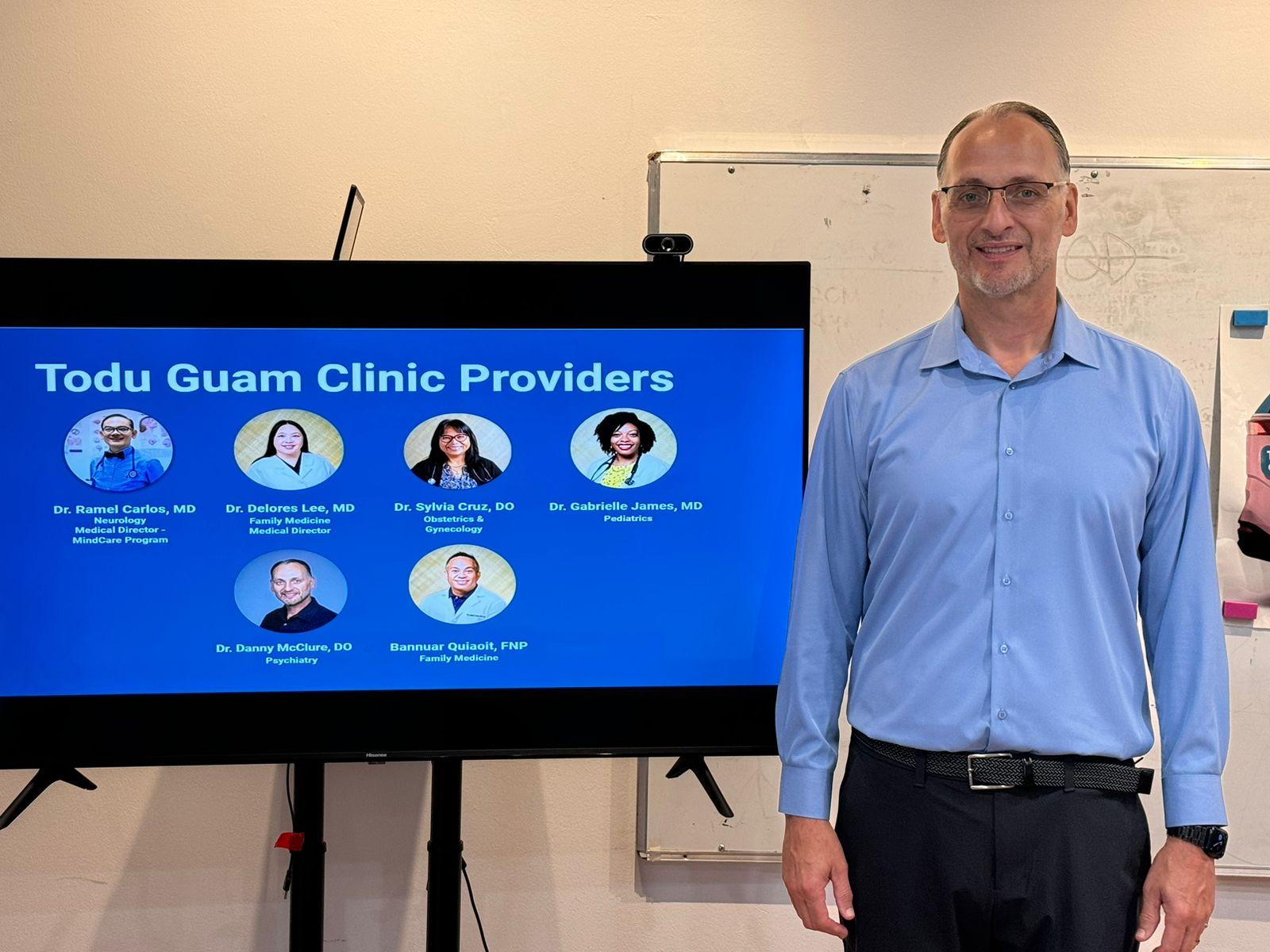
McClure, who specializes in psychiatry and behavioral health, said he is committed to addressing the island’s mental health disparities. “As far as I understand, (Todu Guam Foundation) kind of started with a mobile facility…but we are a brick-and-mortar facility here,” he said. The center provides services in primary care, OB-GYN, adult medicine, pediatrics, and behavioral health, with McClure focusing on psychiatry.
McClure has been exploring the possibility of addressing mental health needs in Guam for over a year. With a background in both inpatient and outpatient care, McClure emphasizes his dedication to serving diverse patient populations, including those in underserved areas.
Originally from Alabama, McClure completed his medical training in Arizona, where he worked with a wide range of patients, from affluent communities to individuals relying on public assistance. Reflecting on his experience at a federally qualified community health center, he noted challenges in delivering adequate care due to limited resources.
“It became frustrating that I didn’t have the tools needed to adequately treat my patients,” McClure said. In his current role, McClure has spent nearly five years expanding services for patients, a commitment he believes could align with Guam’s needs.
In his first weeks, McClure has engaged with stakeholders like the Guam Behavioral Health and Wellness Center to expand access to mental health services. He emphasized the broad impact of behavioral health care. “When one patient with behavioral health needs gets better, it really is not just that one patient. It touches the family, the friends, the people around that patient,” he said.
McClure noted troubling trends in Guam’s mental health landscape, citing 2022 CDC data that ranks suicide as the eighth leading cause of death on the island, compared to 11th in the mainland U.S. Adults aged 30 to 39 are particularly at risk. “That’s the people that are dying by suicide more frequently… It’s also those from the neighboring islands that have the greater vulnerability to suicide,” he said.
He also highlighted differences in suicide methods, with hanging being more prevalent in Guam compared to firearms in the continental U.S. “Hanging takes thought, it takes intention, it takes planning,” McClure said, calling for tailored, urgent interventions.
McClure’s patients have expressed relief at his arrival. “We’re so thankful you’re here,” patients have told him. “We haven’t had it. You know, there’s a few facilities, but we can’t get in there. They’re full.”
To address these gaps, McClure brings advanced treatments such as genetic testing and transcranial magnetic stimulation (TMS) to the foundation. “Genetic testing allows us to tailor medications to each patient’s unique genetic makeup,” McClure explained. “It helps us avoid side effects by identifying how a patient’s liver metabolizes certain medications.”
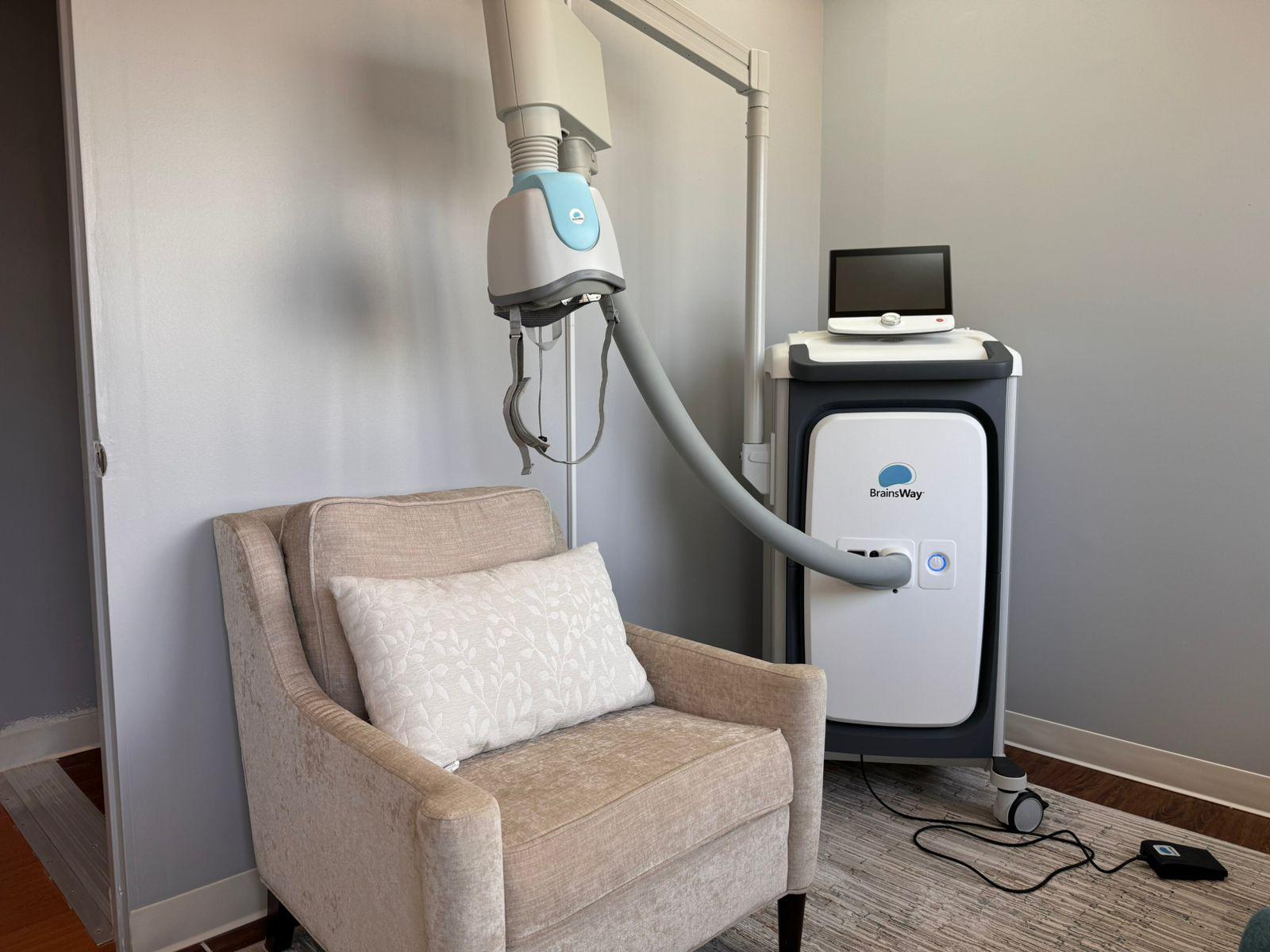
TMS, a non-invasive procedure for depression and other mental health conditions, uses magnetic fields to stimulate brain activity. “This is not shock therapy,” McClure said. “It’s an FDA-approved, outpatient procedure that’s been available in the U.S. since 2008, but it’s new to the island.”
The treatment, often covered by insurance, is a 30-minute session requiring no sedation or hospitalization. A full course involves 30 to 40 sessions over several weeks. “Depression, electrically speaking, is like a low battery. TMS works to recharge and reconfigure the brain’s neural networks, creating new connections and improving mood,” McClure said.
McClure also educates patients about TMS to ease fears. “I’ve undergone the treatment myself and explain what it feels like. Sometimes, I even invite patients to see and interact with the equipment,” he said.
The foundation ensures access to care for all residents, offering a sliding fee discount program for uninsured patients. “For those without insurance, the most they would pay is a nominal fee under $50,” Rodriguez said. “If even that is a challenge, we work with them.”
Patients can access care directly with McClure without referrals. “Patients just come see me,” McClure said. “We make the appointment, and they’re on my calendar.”
The foundation’s integration of mental health with primary care, pediatrics, and gynecology aims to provide a comprehensive medical home. “People who didn’t have access now have access,” Rodriguez said. “That’s the most fulfilling part.”
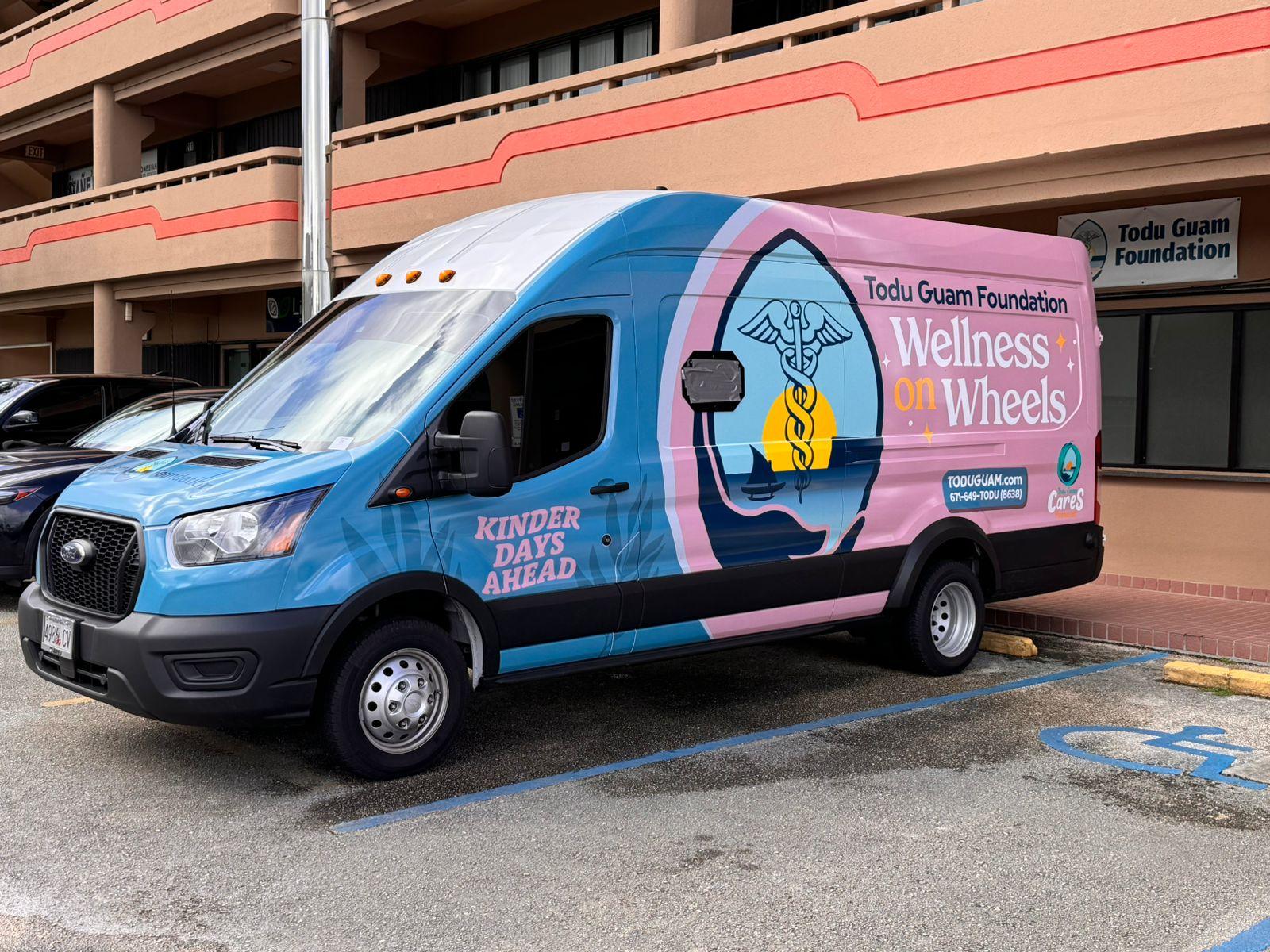
McClure said, “The new term is the medical home. We’d like to be the patient’s medical home for primary care, women’s and children’s care as well.” mbj















